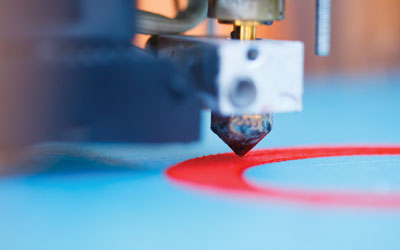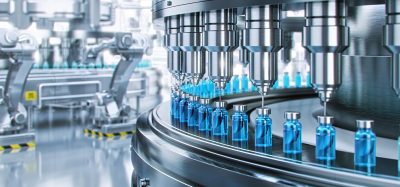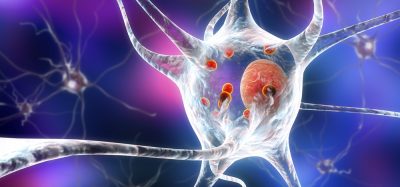Challenges and promises of personalised precision medicine
Posted: 5 May 2023 | Taylor Mixides (Drug Target Review) | No comments yet
Drug Target Review’s Taylor Mixides exclusively interviews Neil Thomas, Partner and Head of Healthcare and Life Sciences for EMEA at Infosys Consulting, on personalised precision medicine, its advances, challenges and the future.


Personalised Precision Medicine (PPM) relies heavily on the use of data and artificial intelligence (AI) to tailor treatment plans to an individual’s unique biomarkers, predict their reaction to certain treatments, and target diseases based on their genetic makeup or environmental factors. While PPM holds great promise for improving patient outcomes, it also faces challenges such as data management, security and the escalating costs of research and development.
What is personalised precision medicine, and how does it differ from traditional medical approaches?
Neil Thomas (NT): Personalised precision medicine (PPM) is medicine that provides individualised treatments based on a patient’s genetic makeup, lifestyle and other factors. This type of medicine relies heavily on the effective use of big data and AI.
In simple terms, PPM is tailored to an individual and their own biomarkers, compared to traditional medical approaches which treat everyone in the same way. Traditional, mass-market medicine is not optimised to the individual, in the way that PPM can and will be. PPM can specifically target diseases depending on a person’s genetic makeup or environmental factors. It can predict how individuals will react to certain treatments, thus avoiding the ‘try it and see’ method used, in some cases, when prescribing mass-market drugs.
How does big data and AI contribute to the development of PPM?
NT: PPM relies heavily on an individual’s own data to make informed, personalised decisions based on the mass of data that is stored across various medical facilities. This is where blockchain technology could come into its own, enabling big data and AI to come together to develop hyper-personalised medicine at scale.
While personalisation is often associated with higher costs, AI can reduce the cost of drug development for hyper-personalised medicine by enabling researchers to predict drug efficacy and safety more accurately. By analysing vast amounts of data, including genetic data, medical histories and drug response data, AI can identify biomarkers and other indicators that can predict how an individual patient will respond to a given drug.
This can reduce the need for expensive clinical trials and help researchers identify promising drug candidates more quickly. AI-enabled hyper-personalisation approaches can also help researchers design clinical trials that are more targeted and efficient, reducing the cost and time required to bring a drug to market.
What are the challenges faced in implementing PPM in drug discovery for therapeutic use?
NT: The large amount of data available poses a big challenge, as well as an opportunity. Not only is this data often stored across various locations like hospitals or medical centres, but each medical facility will use different privacy protocols, meaning security is a challenge that must be taken seriously.
Another pervasive issue is the escalating costs of research and development across the industry. This means budgets are increasingly squeezed, leaving less opportunity to invest in innovative new ways of drug discovery and delivery. Not only that, but patients and governments increasingly want more for less, especially in this new era where personalisation is easily accessed in most other areas of our lives.
How can lifestyle factors, such as diet and exercise, be incorporated into PPM treatment plans?
NT: I believe personalised and precision nutrition is a logical next step for the wider wellbeing industry. There is no reason this cannot follow the same path that PPM is on at present and is likely to complement PPM as a wider preventative measure to improve overall personal wellbeing.
What does the future of PPM look like, and how might it impact the drug discovery industry as a whole?
NT: Undoubtedly, the industry will fundamentally transform because of the new PPM paradigm. Disease prevention, rather than treatment, will become the focus of both manufacturers and providers, leading to improved health for many.


However, this requires a very different reality to the one we have today. Data will need to be securely managed to ensure the right information is used to serve its intended purpose. This will mean a far greater and closer connection between individual, healthcare provider, manufacturer and regulatory bodies.
The exciting element of PPM, though, is the ability to quickly arrive at an accurate treatment that increases patient care, through core analytics on existing datasets. Drug discovery in its truest sense is a factor of the data attained on its trials, and with much greater access to clinical trial data and the ability to process it through AI-powered methods, the related efficacy will be quicker and cheaper to achieve, while delivering more effective management of disease.


Neil is a Partner and the Head of Healthcare and Life Sciences for EMEA at Infosys Consulting. In his current role, Neil leads the delivery of high calibre innovative and transformational services to healthcare and life sciences organisations who want to provide outstanding experiences to patients and stakeholders.
Related topics
Artificial Intelligence, Drug Discovery Processes, Drug Targets, Personalised Medicine
Related organisations
Infosys Consulting
Related people
Neil Thomas








